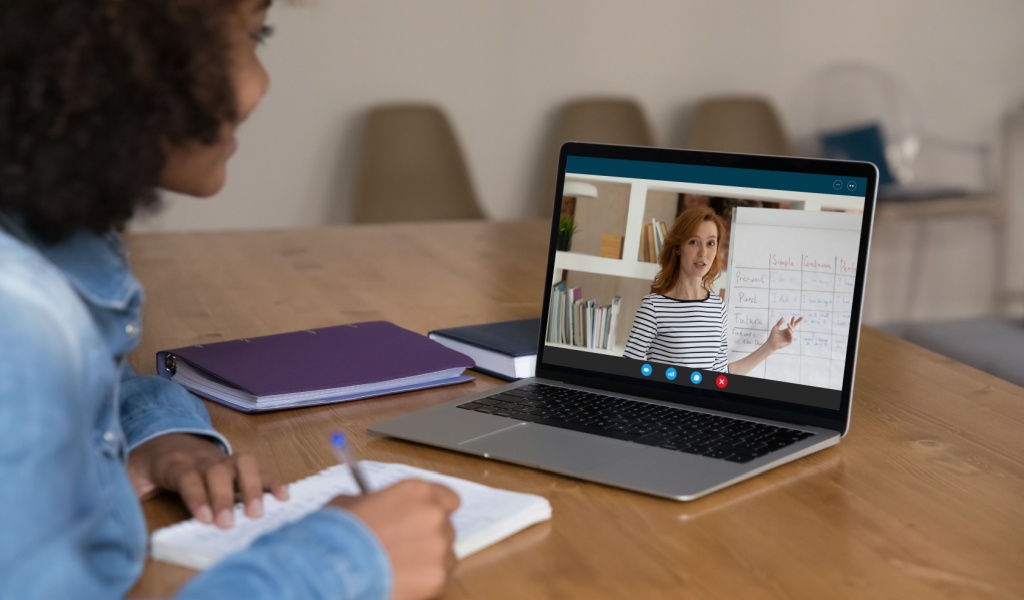Facing a job interview is a high-stress situation that can take your anxiety levels out of the roof, mainly if it’s you’re new to the job market. It helps to practice and prepare yourself so you go into the interview with more confidence and enthusiasm. While there is no hard and fast rule when it comes to questions you will be asked at the interview, here are the most common ones:

Tell us about yourself.
This question is fundamental; how you answer it can make or break your interview. Remember, first impressions matter, and interviewers like to hear stories about candidates. You can talk about how and why you decided to pursue your profession and how you worked at combining your academic qualifications and passion to prepare for the job you’re applying for.
You can also include some light personal information about your family, pets, hobbies, etc. This will give the interviewer a more personable impression.
Example: I come from a small town and opportunities there are challenging to come by. Everything I’ve achieved so far has come after a lot of struggle, starting with education. Good schools in my town were a rarity, so I explored online learning to stay updated about technology – something that has intrigued me since I was young. That’s how I slowly started to learn computer coding, and I went on to acquire my certification as a computer programmer. Once I landed my first job as a front-end coder, I simultaneously started investing in professionally learning more on this subject while climbing up my career ladder with better job opportunities and growth.
What makes you unique?
This question is to identify how good of a candidate you are and what sets you apart from the other candidates. When you answer this question, you have to focus on why and how hiring you can benefit the employer. You can discuss your background, traits, and qualifications that make you a good candidate.
Example: I have worked in retail for five years, and my first-hand experience handling shopper inquiries, feedback, and complaints has made me more aware of what customers want. Having dealt with all types of customers, I’m confident in creating positive customer experiences through marketing.
Why would you like to work here?
This question is usually asked to understand how well you know the company, so your research will save you here. For example, if the company website stresses the importance of collaboration and autonomy, use these keywords in your answer. Remember to take the time to learn about the company’s history, culture, mission, and services.
Example: I understand that your company prides itself in its fast-paced work environment. This is what I’m looking for because I can learn, grow, and thrive in such an environment. I interned at an organization with a similar culture, and I loved the balance it gave me in terms of reaching a collective goal as a team and working collaboratively rather than with the goal of competing.
What aspect of this role interests you?
This question is asked to gauge your comprehension of the role and highlight your skills that are relevant to that position. To answer, you must carefully read the job description and compare the requirements against your experience and skills. After that, you can select a few requirements of the role that you excel in and focus on them in your answer.
Example: I was excited to learn this company uses Adobe products. As someone very passionate about user experience design, I’m well-versed in this aspect, and I love to apply agile workflows to design. I believe this is the only way to tackle huge projects successfully. In my previous role, I was able to build and launch an agile process, and I was commended for pivoting several improvements in project speed and delivery.

Why did you quit your last job?
Your answer to this should be very thoughtful. You could have many reasons for leaving a job, but rather than focusing on the negative aspects, be sure to focus on what you hope to gain in your new position.
Example: For me, working in a company has to be a deeply connected relationship. In my last role, the sales cycle was so short that I didn’t have the opportunity to build rapport with customers and with my co-workers. I chose a career in sales because I love building long-term relationships, and since I didn’t feel that this was fulfilled, I look forward to working with a company where this is a top priority.
How do you deal with high-pressure situations?
The interview asks this question to determine whether you crumble under pressure or are capable of holding your ground. Any employer would want to hire people who can remain calm under pressure and not suffer from a meltdown when deadlines catch up, or pressure intensifies.
You can choose to highlight a specific instance where you remained calm in a highly stressful situation. If it’s something you’re still working on, be honest about that, too, and make sure to talk about the steps you’re taking to respond to pressure better. For instance, this could be a mindfulness practice you have started to follow.
Example: Of course, stressful situations are inevitable, and I have learned – and I’m still learning – how to navigate them. Every new experience has made me better at coping. I remember that there was a new product launch where things were not going to plan with my team. No one was coordinating, everyone was stressed out, and no one was willing to take responsibility. Luckily, I was calm in that situation, and rather than pointing fingers, my initial reaction was to take a step back and figure out some strategies to tackle the matter at hand. A less experienced me would have panicked there, but with time and experience, I’m glad I was calm there to approach the issue better.
What is your greatest strength and weakness?
Be honest about your strengths and weaknesses without feeling vulnerable. Answering these questions confidently gives the interviewer the impression that you’re self-aware.
Example: Well, I’m a natural problem-solver. It’s like solving a complex puzzle; I’ve always loved it. Since product development has a lot to do with finding innovative solutions to new challenges, I find that my problem-solving abilities can come in handy. In fact, it’s what drew me down this career path in the first place.
As for my greatest weakness, I’m a people-pleaser, so I struggle with saying ‘no’. Early in my career, I would take on far too many projects and overwork myself. However, I’m now learning to set better expectations for myself and my teammates.



